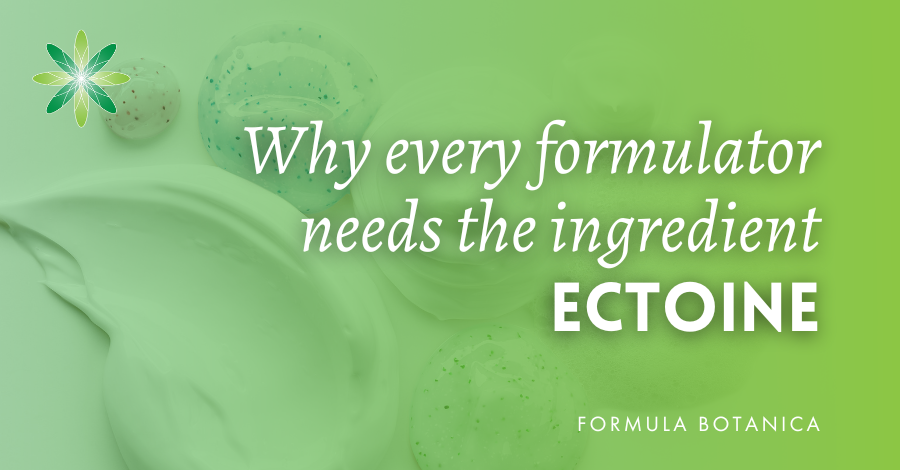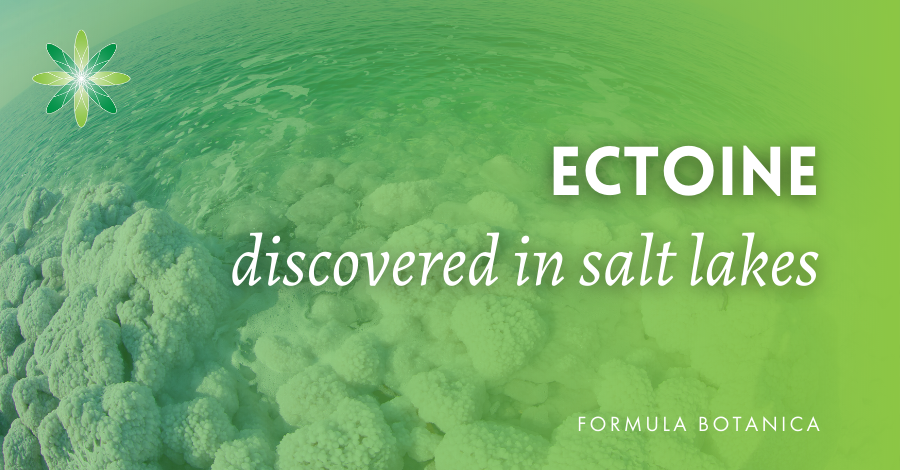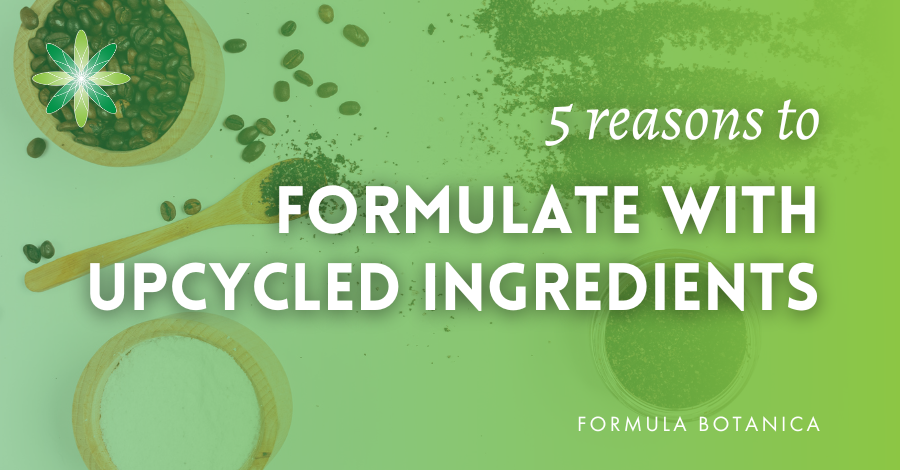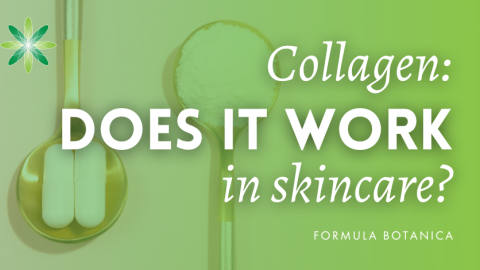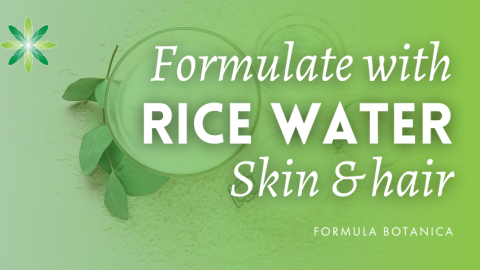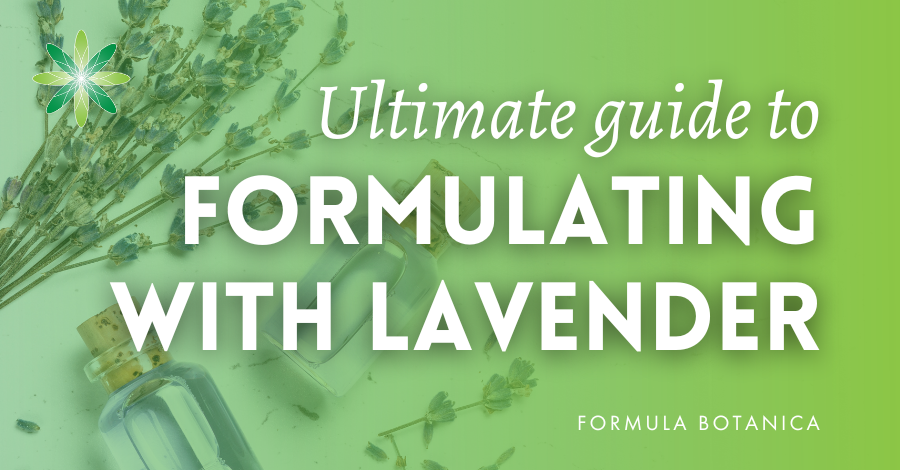What do some of the most extreme and harsh environments on earth have to do with one of the latest, most desirable cosmetic ingredients? The answer is ectoine, a natural compound produced by single cell bacteria, in particular halophiles or salt-loving microorganisms. If this sounds unintelligible, read on as ectoine is surfacing in some of the latest, high-performance cosmetic products around today.
Introducing ectoine
Ectoine helps protect the cellular functioning of microorganisms living in extreme environments such as those of deserts, salt lakes, ice flows and hot sulfurous springs. If ectoine gives rise to this level of cellular protection in nature, then it might have similar fascinating properties when harnessed in cosmetics, thought scientist researching cosmetic ingredients.
First discovered in 1985 and isolated from bacteria found in salt lakes in an Egyptian desert, ectoine is surprisingly only now finding its way into mainstream cosmetics, and being talked about in the beauty media. One Formula Botanica graduate brand Kivens has made ectoine a star ingredient in its product range aimed at intense hydration and protecting the skin’s microbiome.
Pai Skincare, whose founder and CEO Sarah Browne we interviewed in an episode of our Green Beauty Conversations’ podcast, includes ectoine in its Age-Confidence Cream to boost skin hydration.
Here, we take a look at this incredible bacteria-derived ingredient and how natural formulators can include it to good effect in their products.
Will ectoine be taking its place alongside well-established super ingredients like retinol, bakuchiol, niacinamide, vitamin C and hyaluronic acid? Read on to discover why ectoine is the powerhouse ingredient every natural formulator needs in their stash.
What is Ectoine?
Ectoine is an amino acid and a natural compound found within and derived from several species of bacteria. It is an organic osmolyte known as an extremolyte, extracted from extremophilic microorganisms. As their name suggests, extremolytes have evolved to survive and help protect cellular integrity in extreme salinity, heat, cold and drought.
Osmolytes are low molecular weight organic compounds that accumulate water inside cells or tissues to protect them in response to dehydration under environmental stress. That the extremolyte ectoine has the ability to influence the properties of cell fluids is the reason why it is the subject of increasing cosmetic science research.
Ectoine’s primary role is to maintain the integrity of a cell’s structure by affecting the viscosity, melting point, and ionic strength (in other words, the pH) of the cell’s aqueous solution. It can accumulate at high concentrations to protect, but not interfere with, biological cell structures.
Why is it of interest in cosmetics?
In simpler terms, and of interest to the cosmetic scientist, is ectoine’s ability to act as a cell protector and stabiliser, and its role in boosting cellular hydration and guarding against UV irradiation.
In fact, the list of roles this microorganism plays is very long and ranges from strengthening the skin’s barrier to helping reduce trans-epidermal water loss (TEWL) and from offering super moisturisation properties to mitigating the effects of photoageing.
Ectoine has also drawn the attention of cosmetics brands looking at microbiome-compatible formulations. Thanks to its list of protective attributes, which have been shown to transfer to its use in cosmetics, it appears to be the ultimate, skin-friendly active ingredient.
Ectoine has shown to have outstanding properties to protect the skin barrier when compromised by the use of harsh surfactants, extremes of cold or heat, the ageing process or UV exposure. In vivo research has shown ectoine to have strong water-binding capabilities and greater efficacy at maintaining skin hydration than glycerol-based humectants. Interestingly too, ectoine demonstrates long-term moisturisation capabilities. It is also being investigated for its capacity to alleviate atopic dermatitis although as cosmetic formulators, this is not a claim we can make for our formulations.
How do I use it in natural formulations?
As a cosmetic ingredient, ectoine (INCI: Ectoin) in its purest form comes as a fine, white, dry powdered amino acid derivative. It is also included in compound ingredients, and in aqueous formats too, in order to aid its inclusion in a wide variety of cosmetic formulations.
Ectoine is used as an active ingredient and cosmeceutical in just about every category of water-based cosmetic formulation – creams, lotions and gels – and for products ranging from those aimed at mature and/or dry and sensitive skin to hair care and colour cosmetics. There is every reason to take a look at using ectoine in any high-performance natural formulation you are devising.
Given its amazing properties, it is astounding that ectoine is only now becoming star of the show in cosmetic products. We suggest researching ectoine further, using our references below as a starting point, to further your knowledge on ectoine as a versatile and efficacious active ingredient.
Further reading and references
(i) Bownik, Adam and Stępniewska, Zofia. “Ectoine as a promising protective agent in humans and animals” Archives of Industrial Hygiene and Toxicology, vol.67, no.4, 2016, pp.260-265.
(ii) Czech, L., Hermann, L., Stöveken, N., Richter, A. A., Höppner, A., Smits, S., Heider, J., & Bremer, E. (2018). Role of the Extremolytes Ectoine and Hydroxyectoine as Stress Protectants and Nutrients: Genetics, Phylogenomics, Biochemistry, and Structural Analysis. Genes, 9(4), 177.
(iii) Bujak, T., Zagórska-Dziok, M., & Nizioł-Łukaszewska, Z. (2020). Complexes of Ectoine with the Anionic Surfactants as Active Ingredients of Cleansing Cosmetics with Reduced Irritating Potential. Molecules (Basel, Switzerland), 25(6), 1433.
(iv)Alves, A.; Sousa, E.; Kijjoa, A.; Pinto, M. Marine-Derived Compounds with Potential Use as Cosmeceuticals and Nutricosmetics. Molecules 2020, 25, 2536. https://doi.org/10.3390/molecules25112536
(v) Buenger J, Driller H. Ectoin: an effective natural substance to prevent UVA-induced premature photoaging. Skin Pharmacol Physiol. 2004 Sep-Oct;17(5):232-7. doi: 10.1159/000080216. PMID: 15452409.
(vi) Marini, A., Reinelt, K., Krutmann, J., & Bilstein, A. (2014). Ectoine-containing cream in the treatment of mild to moderate atopic dermatitis: a randomised, comparator-controlled, intra-individual double-blind, multi-center trial. Skin pharmacology and physiology, 27(2), 57-65.
FREE TRAINING
Learn how to become an
Organic Skincare Formulator
FREE TRAINING
How to become an
Organic Skincare Entrepreneur
FREE TRAINING
How to become an
Organic Skincare Entrepreneur
Leave us a comment

Liz was Formula Botanica’s Content Coordinator between August 2020-2024. Liz worked as a professional blogger, journalist and site developer for many years and was also part of the Formula Botanica student community. Read more about the Formula Botanica Team.

